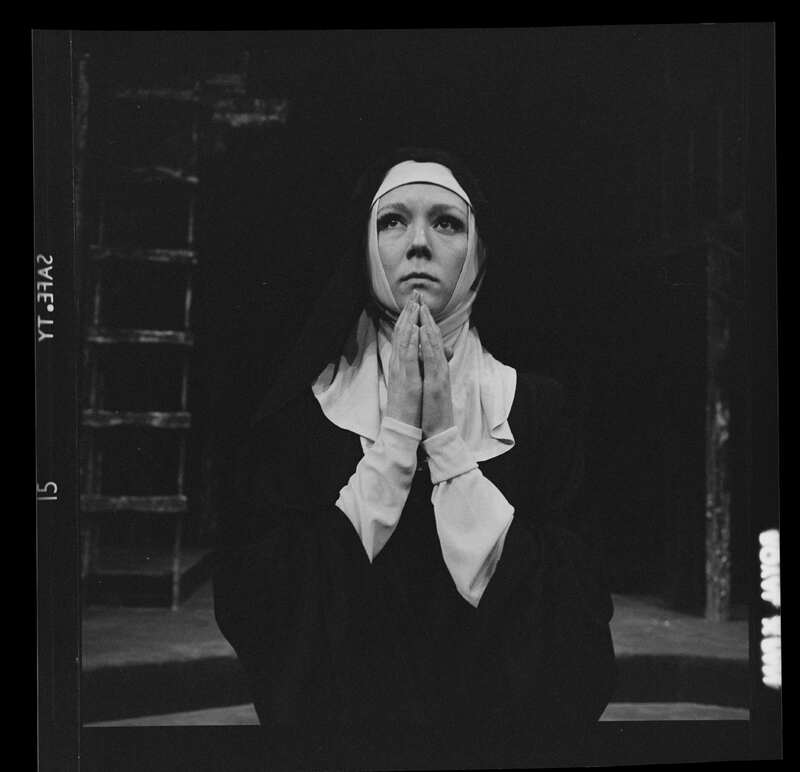Impact of women
The archive tells us a lot about the impact of women on the theatre's history – and what these stories can tell us about the experiences of women in the arts more widely.
We held a panel event to explore the subject: Who were some of the key women whose work we have been exploring in the Northcott's archive? How were they often some of the most trailblazing, challenging and innovative people who have been connected to the theatre? What does the archive reveal about how they were viewed, understood and represented at the time of their work?
We started exploring these questions and discussing how they are still relevant for women working in the arts today at a live streamed event with a panel of talented and impactful women working to develop Exeter’s current arts and cultural landscape. We looked at the stories we discovered in the archive and discussed how we can use this knowledge to shape the future culture of our city and the South West.
Chairing the panel is Natalie McGrath – writer and Co-Director of Dreadnought South West, an organisation that connects individuals and communities through the telling and keeping of great and courageous stories about women's activism that have lain undiscovered and often untold. She is talking with Rachel Vowles - an Arts Education and Community Engagement professional, renowned for her work with young people and wonderful community productions during her time at the Northcott in the '90s and '00s, and Sandhya Dave - a well-known cultural champion in Exeter and beyond; a diversity and inclusion specialist leading on anti-racist work across the region and supporting communities with diverse ethnicities.
You can re-watch the panel event now.
"Archives don't just hold the past. They are routes to uncovering what has been lost or forgotten, whilst also acting as portals to activate change for the future. I'm really excited to be working with Sophie McCormack on this panel about women in theatre at Exeter Northcott, celebrating those who have paved the way, whilst enabling us to consider how to be inclusive of all women's voices into the future." Natalie McGrath
Below you will also find a feature focussing on two influential women of the Northcott's past; Jane Howell and Diana Riggs, by one of the interns studying the archive, Joseph Leyland.
Focus on Jane Howell and Diana Rigg
By Joseph Leyland
Women have been a powerful force throughout the Exeter Northcott's history. When I worked with the archive I primarily focused on documentations of the theatre's history in the 1980s. I was keen to look at how the Northcott has championed (or struggled with) diversity and inclusion throughout its existence as a theatre. However, I also expected some dated language and attitudes from the press; a challenge of working with the archive is extracting the positive work done by women at the theatre from the now dated phrasing that papers used to speak about women. This is definitely the case when focusing in on Jane Howell and Diana Rigg, as both women were influential in the history of the theatre, but the language used to depict them throughout press materials in the archive is reflective of prejudices of the time.
Although some of the reports about Rigg and Howell reflect misogynist attitudes, it is also clear that the pair did not let this bother them, both dismissing press attention that focused on the struggle of being a woman in the theatre industry. This is shown mostly through responses to leading questions that focus on inequality for Howell, and the attention directed at Rigg on trivial matters. Whilst I will focus on two specific women, it is great to see moments of women supporting the theatre throughout its history throughout the archive; as part of Friends of the Northcott, by working in the Box Office or the old Northcott Shop, and as part of the Student Liaison Committee with the University. A great example of the constant undercurrent of support for the theatre from women is Shan Toyne, who initially told now-prominent theatre photographer Nicholas Toyne to apply for the position. The archive reflects that women have always been and always will be a prominent part of the Exeter Northcott through their continuous involvement throughout its history.
The theatre's second Artistic Director was Jane Howell. She was appointed at 35 years old, and newspapers of the time focused on her considerable experience, including that at the Bristol Old Vic, a link that was important to the theatre at the time. Unlike other Artistic Directors, her face was not splashed across the papers, which instead focused more tightly on her plans for the theatre. At the time of her appointment, the question of equality was raised, with Howell saying: "I am in the one job in this world where equality is total, and I have never had any trouble on that score."
Other reports also commented on how she beat six men at interview to become the new director of the Northcott, highlighting the gender divide in theatre at the time. This is mirrored in the theatre's Board of Representatives which throughout the archive can be seen getting progressively more balanced in terms of gender. Howell's run was initially critiqued, but she compared this to the critiques of her predecessor Tony Church, keen to avoid slander based on her gender.
Another woman drew national press later in the same year as Howell's appointment was announced: Diana Rigg, for her appearance in Abelard and Heloise. The reporting of the now famous nude scene focused on Diana's appearance, even though Keith Michell also appeared in the scene. Diana Rigg held the media's focus of this scene and it propelled the Exeter Northcott further into the public eye, with the story becoming nationally famous due to Rigg's career. The sensation was not anticipated by the director nor members of the production, with Rigg saying: "I'm surprised it's caused such a sensation."
We can see how both women deflected common reporting tactics that aimed to single out women in theatre as different to men, both assuring that they were equal in stature and competence, to the extent that the gender divide need not be drawn at all.
The archive is full of these kinds of press cuttings, showing how women have been drawing media attention for the Exeter Northcott since its opening. There are whole folders full of clippings extracted from newspapers that focus on the Northcott, providing insight into how the theatre has been represented in the contemporary press. They span the years since the theatre's opening and allow a thorough view of the theatre and its impact on the local community through local reporting, as well as a wider impact when the theatre also attracted national attention. They show that women's impact at the Exeter Northcott has been varied, and throughout the archive, stories are revealed of how women have drawn the eye of the national press and have been pivotal to the theatre's development.

